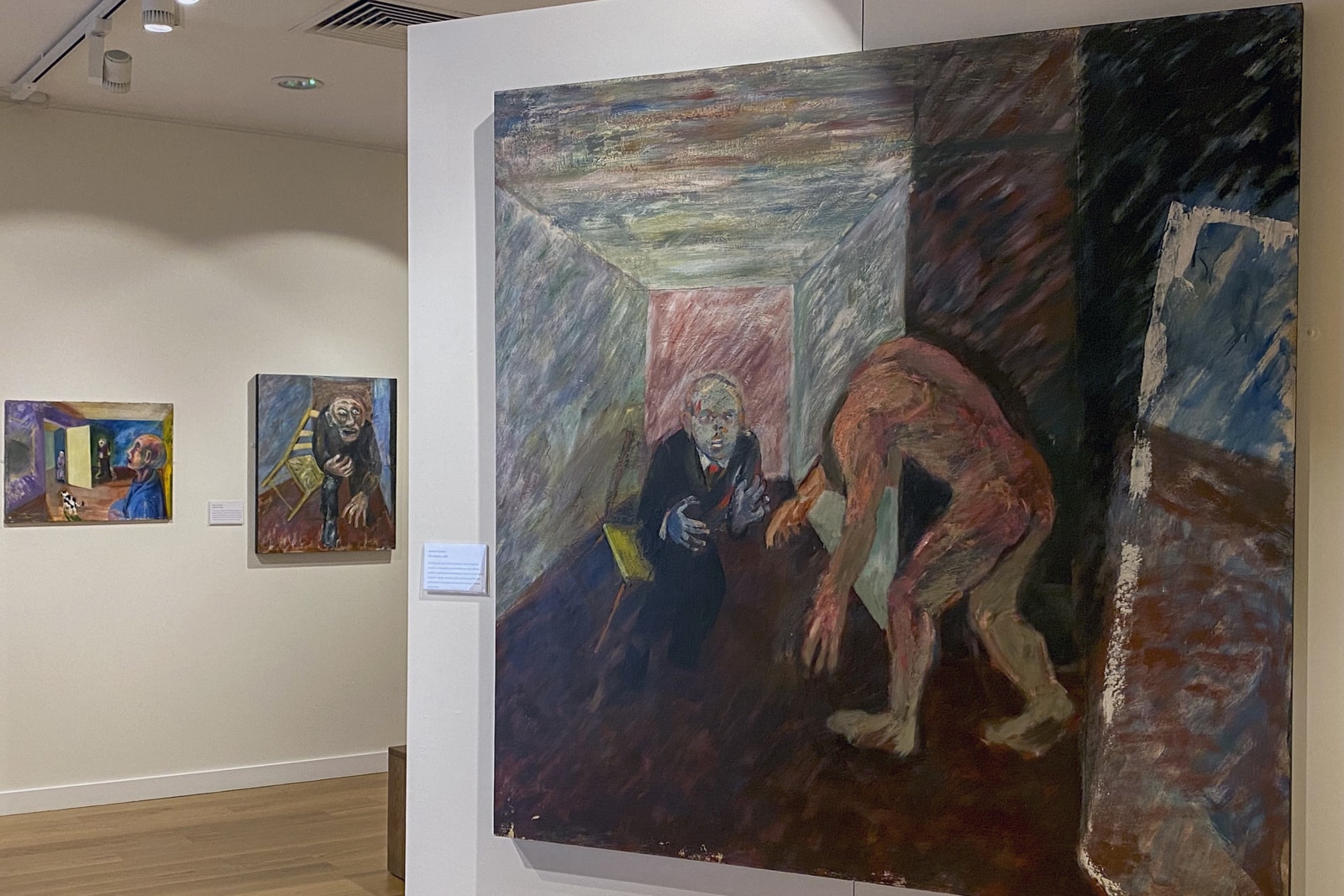- The exhibition, held at the Royal Bethlem Hospital, founded in London in 1272, shows the various stages of psychiatric care.
The Museum of the Mind, housed in Britain’s first mental health hospital, showcases patient and professional art as therapy, while reflecting on the light and shadow of the history of psychiatry and psychology.
This exhibition of works, at the Royal Hospital of Bethlem, south London, goes beyond exploring the centre’s past to explore the stages that characterise psychiatric care, from admission to patient improvement.
For the collection’s director, Colin Gale, despite progress, mental health is still stigmatized. He stressed that the aim of the works on display at the museum is to contribute to raising public awareness of this type of illness.
“We believe that all of these things can help improve mental health today and ask ourselves what future we want as a society providing mental health services,” he told EFE news agency.
Eliminate the stigma against psychiatric centers
Free access to the museum, which is located within a mental health complex part of the UK’s National Health Service, allows the public to get closer to a reality that is still marred by prejudice today.
Gale explains that in this way it is possible to destigmatize these types of centers, which are sometimes even treated as horror film sets, leading to the creation of a false idea about them in the collective imagination.
Additionally, by exposing patients’ artwork, they gain the voice and visibility they need to express themselves and offer new perspectives to people who have not yet suffered from this type of disease.
However, the museum director stressed that mental health is not limited to those who suffer from it, but affects “society as a whole.”
In Bethlem, the profession of the past and the present are also aligned. Founded in 1247 – although it has moved three times – the institution has traveled through all periods of its profession.
Therefore, in the museum you can see chains and other elements of movement restriction related to the shadow trade, which coexist with displays of the evolution of techniques and care.
The visit also drew public attention by highlighting the moral conflicts that mental health professionals often face, such as deciding whether to allow someone suffering from severe depression to stay out of the hospital on weekends.
A world apart
This museum presents realities that are usually far from everyday life to the public and school groups who come to visit it.
That is the reason for the title of the new temporary exhibition by artist and therapist Charles Lutyens, “A World Apart”, which is on view from June 8 in one of the complex’s rooms until August 31.
“We realized that the vital environments Charles depicted were often hidden, sometimes deliberately, but other times more as if people didn’t want to know anything,” the museum director said.
The complexity and fragility of human nature are reflected in Lutyens’ paintings presented in this exhibition, in which he also speaks about himself and how he managed his life experiences, as expressed by his daughter Joanna Lutyens.
“I think he tries to reinterpret and express other people’s emotions in his work, but obviously at the same time a lot of his own emotions are reflected,” he said, of an exhibition he believes anyone can identify with.
Art to support mental health
This is not the only initiative involving arts and mental health in the world.
On April 30, the exhibition “Discovering the walls” of the artistic and therapeutic project Reinventing identities, designed by Albert Fernández and Mónica Cases in collaboration with the museum and the Hospital de Mental Health of the Valencia Provincial Council.
The exhibition, which runs until May 31, is aimed at people diagnosed with mental health disorders, according to the Spanish magazine Mother, Art is used as a tool for self-expression and exploration, aiming to reflect individual and collective identity.
“Health is not only the absence of disease, but also the possibility of enjoying well-being and a healthy life,” said Paco Teruel, Valencia’s representative for Culture.
With information from EFE

“Internet trailblazer. Troublemaker. Passionate alcohol lover. Beer advocate. Zombie ninja.”







